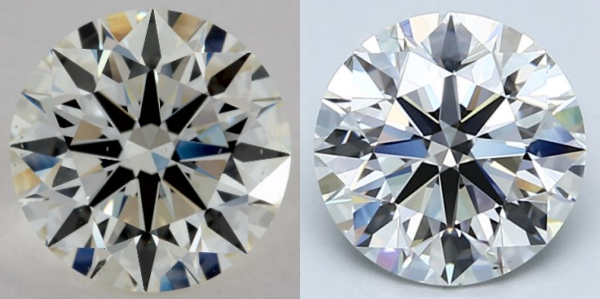
Introduction
Gemstone certifications play a crucial role in determining the quality and value of precious stones in the market. Among the most renowned certification bodies, the International Gemological Institute (IGI) and the Gemological Institute of America (GIA) stand out for their rigorous evaluation processes and global influence.
Overview of IGI
Founded in 1975, IGI has established itself as a leading gemological institution providing grading and certification services for diamonds, colored gemstones, and jewelry. Its headquarters in Antwerp igi vs gia, Belgium, serves as a hub for gemological research and education.
Overview of GIA
The Gemological Institute of America, established in 1931, is considered the gold standard in gemstone grading. Headquartered in Carlsbad, California, GIA is renowned for its comprehensive research, education, and grading services, setting benchmarks in gemological standards worldwide.
Comparison of Certification Processes
Both IGI and GIA employ stringent criteria for grading gemstones, including the 4Cs (cut, clarity, color, and carat weight). However, their methodologies and grading standards may differ slightly, influencing the final assessment of a gemstone’s quality.
Cost Differences
The cost of certification varies between IGI and GIA. Factors such as the type of gemstone, its size, and the desired level of certification contribute to these differences. Generally, GIA certifications tend to be more expensive due to their widespread recognition and meticulous grading process.
Popularity and Acceptance
GIA holds a stronger global reputation compared to IGI, particularly in high-end markets and among collectors. However, IGI certifications are widely accepted and recognized in many parts of the world, offering a more accessible option for consumers seeking quality assurance.
Quality Standards
Both IGI and GIA maintain high standards of gemological evaluation. GIA is known for its strict grading consistency and reliability, whereas IGI provides detailed reports that cater to a broader spectrum of gemstone qualities and price points.
Case Studies and Customer Experiences
Comparing gemstones certified by IGI and GIA reveals nuances in grading standards and market perceptions. While both certifications ensure quality, GIA-certified stones often command higher prices and are preferred in auctions and luxury markets.
Educational Resources
Both IGI and GIA offer extensive educational resources for consumers and professionals interested in gemology. These include online courses, workshops, and informative publications that enhance understanding of gemstone quality and value.
Choosing Between IGI and GIA
When selecting between IGI and GIA certifications, consider factors such as budget, the intended use of the gemstone, and the level of confidence desired in its quality assessment. For high-value stones or investment pieces, GIA certification may be more suitable, whereas IGI provides a practical choice for everyday jewelry.
Future Trends
The gemological industry continues to evolve with advancements in technology and growing consumer awareness. Both IGI and GIA are adapting to these changes by integrating innovative grading techniques and expanding their educational outreach to meet the demands of a dynamic market.
Conclusion
In conclusion, choosing between IGI and GIA certification depends on your specific needs and preferences. While GIA remains the pinnacle of gemological excellence, IGI offers a reliable alternative with broader accessibility. Whether you’re purchasing a diamond engagement ring or a rare colored gemstone, understanding the distinctions between these certification bodies ensures confidence in your investment. Ultimately, both IGI and GIA play vital roles in safeguarding the integrity and value of gemstones in the global market.
